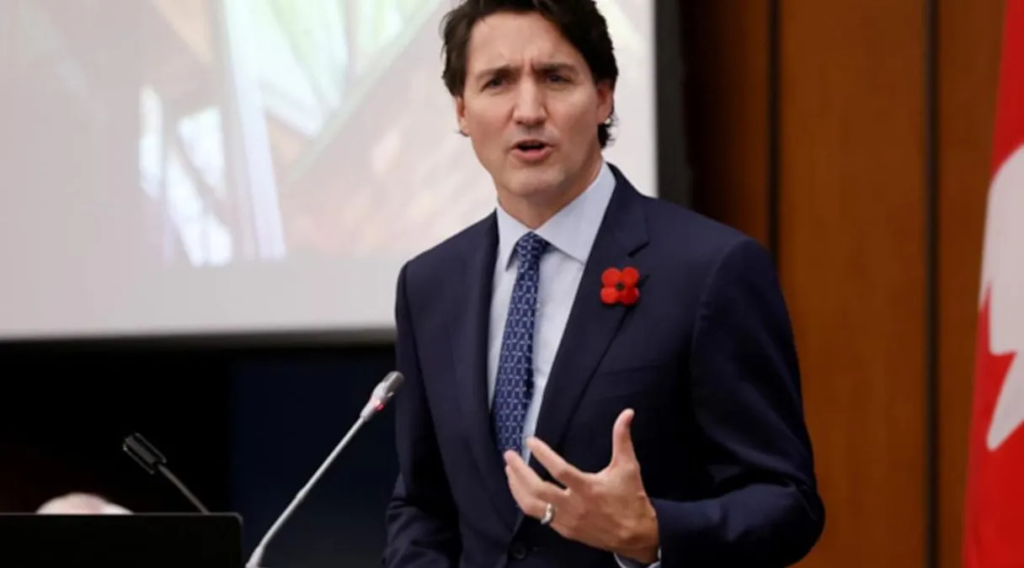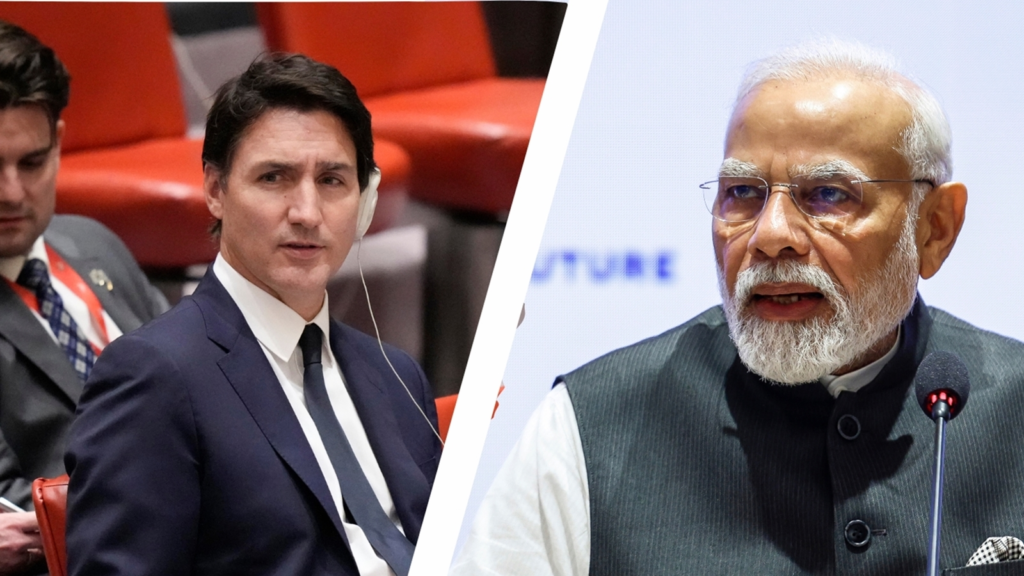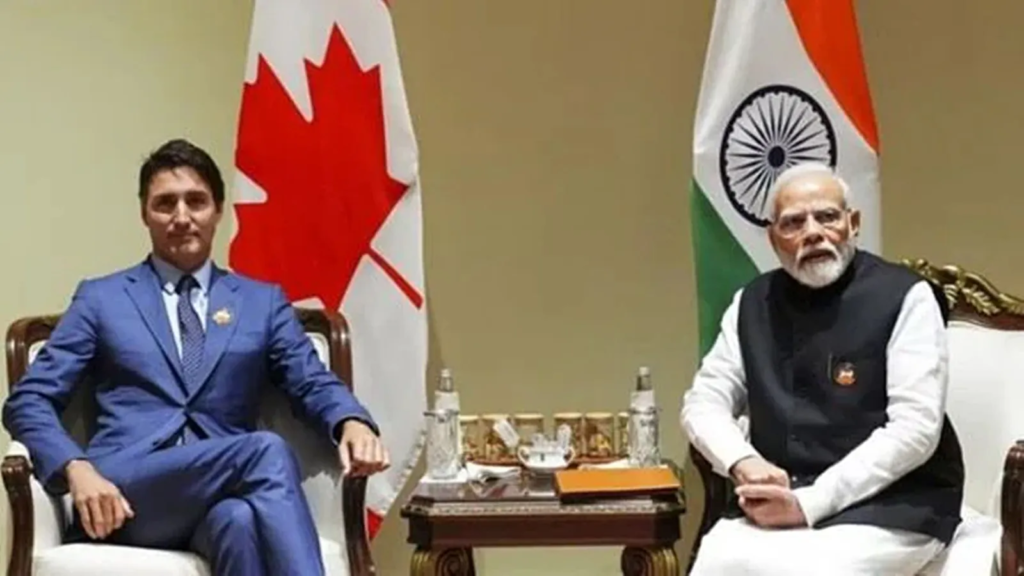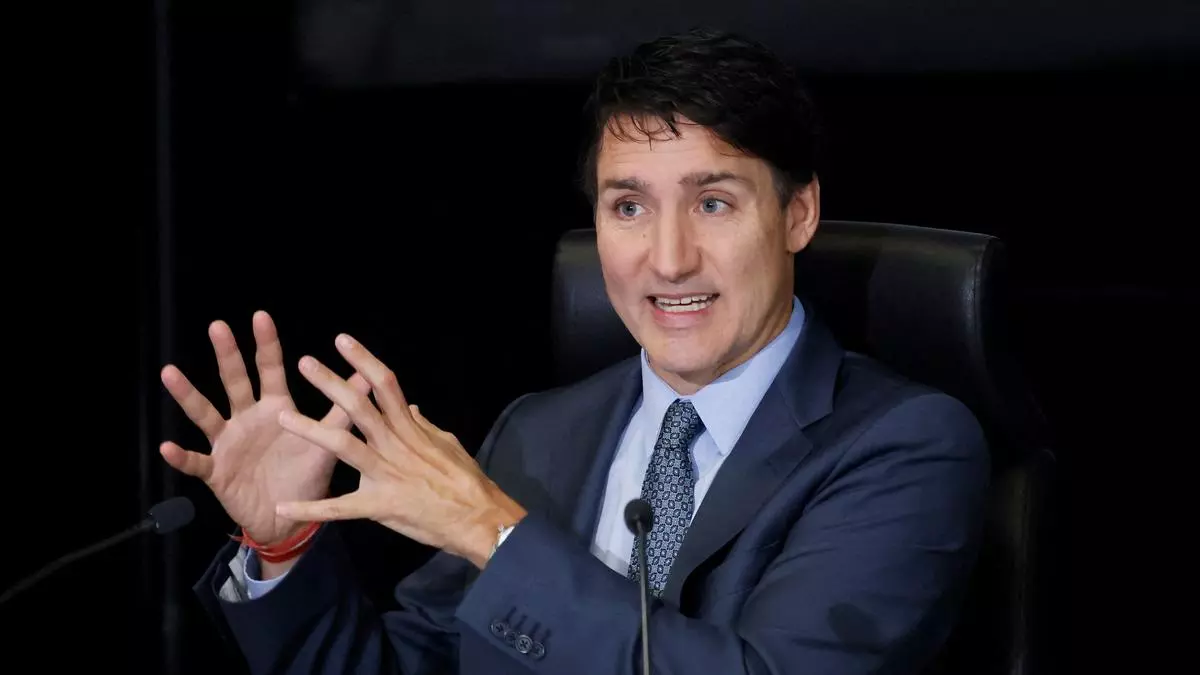Canada PM Trudeau has acknowledged that there is no hard evidence to support claims linking India to the killing of Khalistani separatist Hardeep Singh Nijjar, intensifying an already tense diplomatic row.
In a major revelation that could alter the trajectory of the ongoing diplomatic dispute between Canada and India, Prime Minister Justin Trudeau admitted that his government had no “hard evidentiary proof” linking Indian agents to the killing of Hardeep Singh Nijjar.
Trudeau made this statement during his testimony before a Commission of Inquiry into foreign interference in Canadian politics, a testimony that drew significant international attention.
Canada PM Trudeau’s Admission: No “Hard Evidentiary Proof” Against India
The allegations, which first surfaced in September last year, claimed a potential involvement of Indian government agents in the killing of Nijjar, a known Khalistani separatist, outside a gurdwara in Surrey, British Columbia.
Nijjar had been declared a terrorist by India for his pro-Khalistan activities. The murder on June 18, 2023, sparked a diplomatic crisis, with both countries trading accusations and drastically reducing their diplomatic ties.
During his testimony, Canada PM Trudeau acknowledged that the evidence provided by Canadian intelligence was based on “clear indications” rather than concrete proof. He stated that intelligence reports suggested that India might have violated Canadian sovereignty, but crucially admitted that there was no definitive evidence.
Read : Canada Will Host Next G7 Summit in 2025: Will India Be Invited?
This admission has raised serious questions about the basis of the diplomatic rift between the two nations, which has already seen expulsions of diplomats, withdrawn ambassadors, and a sharp downturn in bilateral relations.
Read :Canadian PM Solely Responsible for Damage to India-Canada Relations: India
The lack of hard evidence has further fueled India’s insistence that the allegations are unfounded. From the beginning, India has rejected Trudeau’s claims, labeling them as “absurd” and maintaining that the issue is rooted in Canada’s failure to address the activities of pro-Khalistan elements operating on its soil.
These elements, India argues, have long been provided a safe haven in Canada, allowing them to continue their anti-India campaigns with impunity.
India’s Response: Rejection of Canadian Allegations
In response to Canada PM Trudeau’s testimony, India’s Ministry of External Affairs (MEA) reiterated its longstanding position that Canada had failed to provide any substantial evidence to support its allegations.
MEA spokesperson Randhir Jaiswal issued a late-night statement affirming India’s stance, saying, “What we have heard today only confirms what we have been saying consistently all along – Canada has presented us no evidence whatsoever in support of the serious allegations that it has chosen to level against India and Indian diplomats.”

India has firmly rejected the notion that its agents were involved in the killing of Hardeep Singh Nijjar. The Indian government has consistently maintained that the real issue between the two countries lies in Canada’s lenient approach towards Khalistani extremists who openly advocate for the secession of Punjab from India.
These extremists, India claims, use Canada as a base to incite violence and spread anti-India propaganda, a situation that has long been a point of contention in bilateral relations.
Further intensifying the situation, Canada has alleged that Indian diplomats were actively collecting information on Canadian citizens who disagreed with the Narendra Modi government and were passing this information to both the Indian government and criminal organizations, including the Lawrence Bishnoi gang.
India, however, strongly dismissed these allegations, with official sources in New Delhi calling them baseless and simply untrue.
The dispute has led to a significant escalation in tensions. Earlier this week, India expelled six Canadian diplomats from its embassy in New Delhi and also announced the withdrawal of its high commissioner from Ottawa.
These actions came after Canada expelled an Indian diplomat in connection with the Nijjar case, triggering the most serious diplomatic clash between the two nations in decades.
A Diplomatic Downturn: The Aftermath of Trudeau’s Allegations
The diplomatic fallout from Justin Trudeau’s initial allegations in September last year has been swift and severe. What began as accusations from the Canadian Prime Minister has since spiraled into a major diplomatic rift, with both nations taking retaliatory actions that have further strained their already frosty relations.
Trudeau’s claims last year that Indian agents were “potentially” involved in Nijjar’s killing sent shockwaves through international diplomatic circles. At the time, India’s response was swift and sharp, dismissing the charges as politically motivated and without merit.
India’s position was clear: the issue was not one of external interference but rather Canada’s failure to take action against pro-Khalistan extremists who openly operate within its borders.
India has long accused Canada of harboring and supporting these separatist elements, whose ultimate goal is to create a separate Sikh state, Khalistan, carved out of Indian territory.
The issue of Khalistani extremism has been a recurring thorn in India-Canada relations for years, with New Delhi expressing frustration at what it sees as Ottawa’s reluctance to take a firmer stance against these groups.

The killing of Hardeep Singh Nijjar further complicated an already delicate situation. Nijjar, a prominent figure in the Khalistani movement, had been a vocal advocate for a separate Sikh state and was heavily involved in organizing anti-India protests in Canada.
His designation as a terrorist by India underscored his significance in the eyes of Indian authorities. However, his assassination on Canadian soil has now become a focal point in the deteriorating relations between the two nations.
The Canadian government’s decision to expel Indian diplomats, coupled with Trudeau’s accusations, deepened the rift. In response, India expelled six Canadian diplomats, a move that further escalated the situation.
The diplomatic expulsions were seen as a clear signal of India’s displeasure and its determination to protect its sovereignty and international standing.
The latest developments, including Trudeau’s admission that there is no hard evidence, have left many observers questioning the future of India-Canada relations. The lack of concrete proof has cast doubt on the validity of the original allegations, leading to calls for a re-evaluation of the diplomatic standoff.
At the heart of the issue remains the growing influence of pro-Khalistan elements in Canada, a problem that India believes must be addressed for any meaningful resolution to take place.
With both countries standing firm on their respective positions, the path to reconciliation remains uncertain. Trudeau’s admission, while significant, may not be enough to bridge the divide that has widened over the past year.

The damage caused to India-Canada relations is evident, with both nations expelling diplomats and withdrawing their high commissioners, actions that are usually taken in extreme circumstances.
For India, the issue goes beyond the Nijjar case—it is about addressing what it sees as Canada’s tolerance of anti-India forces operating within its borders. For Canada, the allegations have not only strained its relationship with India but also raised questions about the credibility of its intelligence and diplomatic strategies.
As the dust settles on Canada PM Trudeau’s testimony, the focus will likely shift towards finding a diplomatic solution that can restore some semblance of normalcy to India-Canada relations. However, with both sides entrenched in their positions, the road to reconciliation may be long and fraught with challenges.

